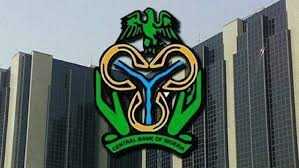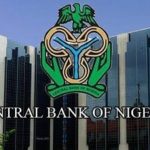The Central Bank of Nigeria (CBN) has directed banks operating under regulatory forbearance to suspend dividend payouts, defer executive bonuses, and freeze new investments in foreign subsidiaries or offshore ventures. This temporary measure forms part of a broader effort to reinforce capital buffers and strengthen the overall resilience of Nigeria’s banking sector.
According to the directive, the suspension will remain in effect until the apex bank independently verifies the capital adequacy and provisioning levels of the affected banks, ensuring full compliance with prevailing regulatory standards.
The directive targets banks that are currently benefitting from regulatory forbearance related to credit exposure and breaches of the Single Obligor Limit (SOL), conditions that signal financial stress or heightened risk exposure.
“This temporary suspension is until such a time as the regulatory forbearance is fully exited and the banks’ capital adequacy and provisioning levels are independently verified,” the CBN stated. “This supervisory measure is intended to ensure that internal resources are retained to meet existing and future obligations and to support the orderly restoration of sound prudential positions.”
Under this new order, affected banks must:
- Suspend all dividend payments to shareholders.
- Defer bonuses for directors and senior management.
- Cease all new offshore investments or foreign expansion plans.
The latest move reflects a shift in the CBN’s stance—from post-pandemic relief to tighter fiscal discipline as it seeks to restore financial soundness across the banking system. The Nigerian banking sector is currently undergoing a major recapitalisation push, with higher capital requirements expected to be implemented in phases through 2026.
The new directive comes amid growing concerns about FX volatility, inflation, and credit exposure risks. Analysts suggest the CBN is now prioritising capital preservation to strengthen banks’ ability to withstand economic shocks.
This is not the first time the CBN has taken a hard stance on how banks manage their capital. In April 2022, the CBN extended interest rate forbearance to help banks navigate post-COVID pressures. But that measure also increased banks’ exposure to risk by deferring recognition of bad loans.
In September 2023, the CBN prohibited banks from using FX revaluation gains for dividends or capital expenditure, ordering that such gains be placed in a “Special Regulatory Reserve.” The bank reinforced this position in March 2024, warning that FX windfalls were volatile and should be retained to strengthen capital bases.
With this new directive, the CBN is expanding its oversight—not just over how profits are allocated, but who benefits and where funds are directed. The move effectively signals the end of leniency for banks under financial strain and reinforces the central bank’s intent to ensure that capital is used prudently, especially amid ongoing reforms and recapitalization efforts.
As the financial system braces for stricter enforcement, banks under forbearance will need to prioritise internal restructuring and capital strengthening over shareholder or executive gains, until they meet full regulatory compliance.










